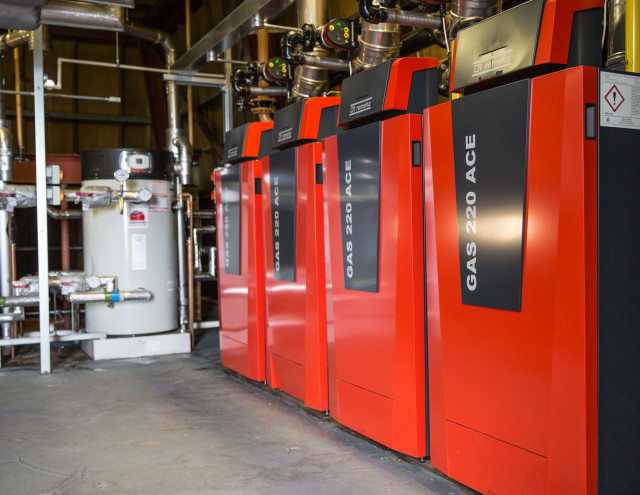The COVID-lockdown building hokey cokey

As England heads into a winter lockdown, Baxi Heating’s Technical Director Andy Green offers pointers on protecting unoccupied buildings and their heating systems in the colder months
As England begins its second national lockdown, building operators will once again need to put into place measures to protect the heating and hot water systems in any unoccupied premises.
Déjà vu? Well, yes and no. While this second lockdown is anticipated to be shorter than the first, lasting one month rather than three, it takes place at the onset of winter. Heating engineers and facility management providers will therefore need to adapt the maintenance schedule accordingly to ensure that the heating and hot water system operates efficiently and – crucially – safely once the premises is reactivated.
Freezing and frost damage
Turning off the heating in November, for example, would make the building susceptible to freezing of the pipework and the possibility of frost damage to the property.
While the thermal efficiencies of old and new buildings will differ, in both, setting the temperature to a minimum of 10ºC using a frost thermostat or weather compensator will prevent any damage caused by freezing. We advise increasing the temperature during normal occupancy hours to keep structural damp at bay.
Dampness can not only cause damage to the building fabric but enable mould to grow which can lead to sick building syndrome. Proactively preventing this will help protect occupant wellbeing and safety in addition to avoiding the possibility of deterioration of stock.
Low usage maintenance schedule
As with the first lockdown, a weekly low occupancy mode maintenance programme should be implemented in empty buildings to keep the system in top condition and avoid any risk of legionella.
This will typically include a weekly visual inspection of the plant, even in buildings that can be monitored remotely through the Building Management System. Moving parts like pumps should be kept operating for ten minutes once a week to help prevent them seizing and failing once the building is reactivated.
Avoiding water quality deterioration
Water quality within domestic hot water systems must also be addressed.
HSE Approved Code of Practice HSG274 offers practical advice and guidance on the control of legionella bacteria in water systems in operational buildings. But what about a building that is closed for a short period of time? When the water system in a building is left to stagnate even for just a few weeks, water quality can deteriorate considerably. In a worst-case scenario, this can cause excessive corrosion of copper materials within the water system, a build-up of microbial activity on surfaces, and an increase in bacteria formation such as legionella.
Introducing fresh water through the domestic hot water (DWH) system can prevent this. We recommend:
· introducing fresh water into the DHW system at least once a week with regular water draw-offs from all outlets;
· ensuring that the DWH return pump circulates water around the system for at least 10 minutes an hour, even when hot water is not required;
· heating the DHW tank to pasteurisation temperature (60-70ºC) for at least one continuous hour at least once a week to prevent bacteria forming.
It is critical when reactivating the building to implement a full water treatment and legionella prevention programme that will include pasteurisation, microbiological sampling and chlorination where required.
We won’t be alone in thinking that the changing COVID-19 situation has been a bit like doing the hokey cokey – are we in the building or out this month?
And while there is hope on the horizon with the emergence of a vaccine, a flexible approach to opening and closing buildings is likely to continue to be key in the months ahead to enable businesses and organisations to bounce back swiftly.
With robust planning, building operators, FM providers and heating engineers will be able to adapt rapidly the way they operate their systems to best meet the changing requirements related to differing occupancy rates and building usage. As with ‘normal’ maintenance programmes, it pays to be prepared.
www.baxiheating.com







